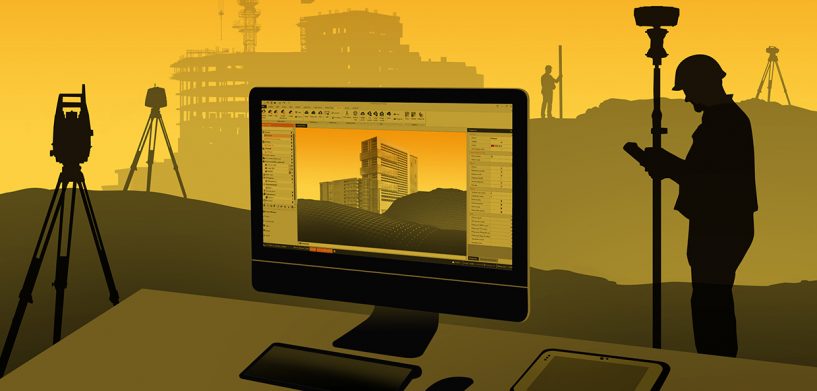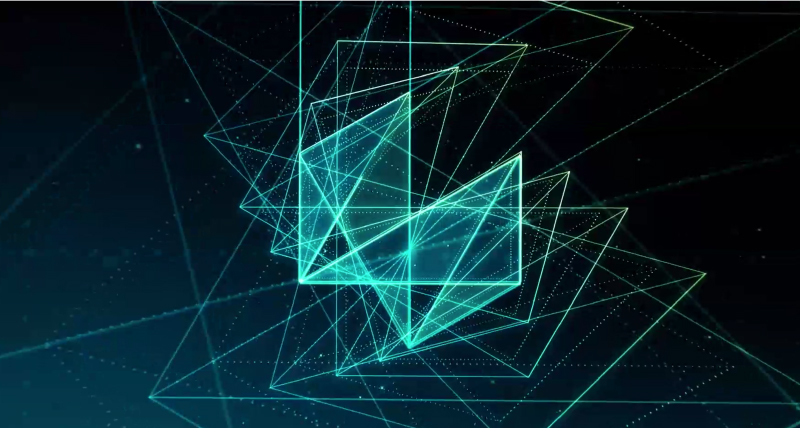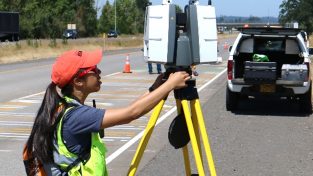BK: Hexagon has acquired LSE, an Italian firm specializing in construction, surveying, field, and office software. Since its founding in 2011, LSE has had a close working relationship with Hexagon’s Geosystems division. LSE plays a great role in developing several geosystem software solutions such as GeoMax, X-PAD, and IDS u-Viewer. Welcome to HXGN Radio. My name’s Brian, and today we have with us Katy Broder, from Hexagon’s Geosystems division, and Kevin Caratsa from LSE to discuss the most recent developments in software. Thank you both for joining us.
KB: Hi, Brian.
KC: Hi.
BK: Well, Katy, I’m going to start with you. I’m curious about the focus of Hexagon’s Geosystems division on software. Tell us about that.
KB: Sure. You know, Brian, customer experience with our unique solutions is often strongly related to software. Of course, the sensors are very important, but they do relay between the systems that make them unique is the software, especially when it comes down to heavy users that need reliable smart solutions every day. So for us, simplicity is clearly the key to the success, and being able to speak the same language of our customers. So we always try to put ourselves into the shoes of our customers and fully embrace the challenges, kind of the headaches and the environment they face every day.
BK: So, I’m assuming that, you know, getting to know really what your customers want, understanding them, I’m sure that’s changed quite a bit with the direction of where you’ve gone and also created some success for you.
KB: Absolutely. And this is actually one side the biggest challenge but I would say also the most exciting part in this development is that we’re staying very close to our customers, and we develop tailored, really fully custom-oriented solutions. So the costumer really has a direct influence on the way that we program and how we work the software. And it’s clearly working for us very well. It’s the high differentiating factor that we have in our business today.
BK: Good. Makes them happier too, and keeps them around.
KB: Absolutely.
BK: So, what made you first decide to work with LSE on the software developments?
KB: I think the biggest part is the spirit of LSE. So LSE has shown entrepreneurship and innovation from the very beginning. Also, a clear attitude to be close to the end users, meaning to go out, really, into the fields—I would say into the construction dirt pit, if you will, to observe and work with costumers to create the best software solution in regards to the workflow. And workflow in regards also to the language for customers and really the way that makes the work more efficient. So spending significant time that was really some in the field, that was something that was outstanding, really, to see. And actually what the outcome is that the software is putting us ahead of everybody else. And, of course, LSE clearly pioneered Androids in our segment and created a market standard.
BK: Well, Kevin, tell us more about LSE.
KC: Well, LSE is a software browser that scientists [unclear]was specializing in solution and application for extraction and Geo Map [unclear]. So our software are characterized by an innovative approach to problem solving, the use of the latest technology and the [unclear] use that make them universally appreciated by all users. So the attention to details, quality, and reliability are elements always present in all products. Since the beginning, we work closely with GeoMax and to Geosystems division, offering them exquisite product and solution that has been appreciated worldwide.
BK: So, how do you go about developing the technology, then?
KC: Well, there are several things that are part of the development process in company, and that are also part of our DNA. One of them is for sure the innovations, period. We try every time to innovate and to introduce something new, that has never been done before. So as Katy said, for example, in 2013, we introduced the first professional field surveying application that was based on an Android device. It has been a revolution. For a conservative market that, that before was based only on optimization with mobile devices. We brought a professional application to tablets and to phones.
After five years, everybody know that it was a winning choice because our product is still unique and appreciated worldwide. Another key point is stay close to the customer, fully understand their needs. Only if we fully understand their needs we can take care of it and reply in time with a viable solution. Not only for them, also for all other accounts.
So many nice features have been born exactly in this way. I could continue with many other examples but behind all, I think that there is invention for the software development, and the passion is for our job is really makes the difference, I think. And we still now have a lot of passion.
BK: So, what does it mean for you and LSE now to be part of Hexagon?
KC: Ooh. Well, we are very proud to be part now of this important group, that is for sure one of the big players in the global market, with global solution for geomatics, for extraction, mining, manufacturing, and many other suites. If Hexagon decided to acquire us, means that we did a good job in the past, and they needs to continue to do it even better in the future.
For all the members of our team, this is also an opportunity to grow up professionally, to share experience and knowledge and technologies, and to consolidate existing projects and work on new ideas. It is a new starting point with new challenges and that we are determined to beat.
BK: Katy and Kevin, both of you, I would like to know where you see geospatial software developments going in the future, and Katy, let’s start with you.
KB: That’s a really good question, Brian, and in my opinion what we see is becoming more and more a trend is that customers are asking for really personal customizing and flexible software. Again, the sensors are very important but the software kind of makes a difference. And this is clearly where we see where we are already today, this is a strength we have, and this is where we will strongly continue to invest, to make a difference in the market. Kevin, would you confirm that?
KC: Yeah, I also, I would like to add that today we have several type of technologies that are able to collect geospatial data. All technologies we have seen that are a complement to each other and the reason [unclear]technology. So the challenges of the software development for geospatial industry are to offer a better integration of the geospatial data collectors with different technologies, and transform this big amount of data into something usable for the end user.
I like the concept announced by president of Geosystems division, Juergen Dold, when he speaks and announced the concept of democratizing the reality. To be able to collect data is not enough yet. Data have value when they are useful, and the software must play this role to make this democratization process happen.
BK: Well, very, very exciting. Thank you both, Katy and Kevin, really appreciate your time. And thank you both for sharing this. Congratulations on working together, and very, very cool to see some of the success that you’re having with that and also with your customers.
KB: Thanks, Brian.
KC: Thank you.
BK: For more information on what we just discussed, visit hexagon.com and LSE-online.com. And of course for additional episodes and to learn even more, head over to HxGNSPOTLIGHT.com. And thank you so much for joining us here on HXGN RADIO.

















